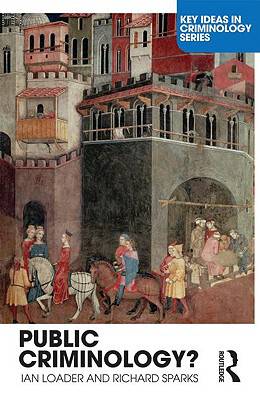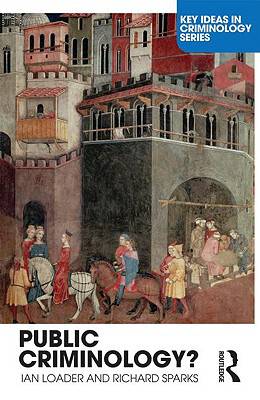
- Afhalen na 1 uur in een winkel met voorraad
- Gratis thuislevering in België vanaf € 30
- Ruim aanbod met 7 miljoen producten
- Afhalen na 1 uur in een winkel met voorraad
- Gratis thuislevering in België vanaf € 30
- Ruim aanbod met 7 miljoen producten
Omschrijving
What is the role and value of criminology in a democratic society? How do, and how should, its practitioners engage with politics and public policy? How can criminology find a voice in an agitated, insecure and intensely mediated world in which crime and punishment loom large in government agendas and public discourse? What collective good do we want criminological enquiry to promote?
In addressing these questions, Ian Loader and Richard Sparks offer a sociological account of how criminologists understand their craft and position themselves in relation to social and political controversies about crime, whether as scientific experts, policy advisors, governmental players, social movement theorists, or lonely prophets. They examine the conditions under which these diverse commitments and affiliations arose, and gained or lost credibility and influence. This forms the basis for a timely articulation of the idea that criminology's overarching public purpose is to contribute to a better politics of crime and its regulation.
Public Criminology? offers an original and provocative account of the condition of, and prospects for, criminology which will be of interest not only to those who work in the fields of crime, security and punishment, but to anyone interested in the vexed relationship between social science, public policy and politics.
Specificaties
Betrokkenen
- Auteur(s):
- Uitgeverij:
Inhoud
- Aantal bladzijden:
- 208
- Taal:
- Engels
- Reeks:
Eigenschappen
- Productcode (EAN):
- 9780415445504
- Verschijningsdatum:
- 5/07/2010
- Uitvoering:
- Paperback
- Formaat:
- Trade paperback (VS)
- Afmetingen:
- 130 mm x 198 mm
- Gewicht:
- 204 g

Alleen bij Standaard Boekhandel
Beoordelingen
We publiceren alleen reviews die voldoen aan de voorwaarden voor reviews. Bekijk onze voorwaarden voor reviews.











